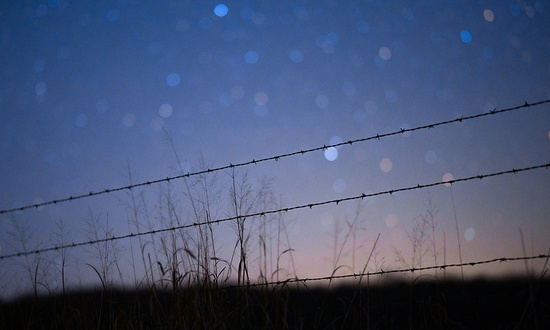The widely stated notion “all sin is alike to God” is not grounded in Scripture. Yes, all sin is bad, separates us from God, and is deserving of God’s wrath. All sin crucified Jesus, and He freely offers His grace because no sin is beyond the reach of God’s grace. But it’s a myth that every sin is exactly the same to God.
Think of what 1 Corinthians 6:18 says: “Flee sexual immorality! Every other sin a person commits is outside the body, but the person who is sexually immoral sins against his own body” (CSB). Note the clear distinction between “every other sin” and “the person who is sexually immoral.” There is something qualitatively different about sexual sin. (Why? Because as I explore in my book The Purity Principle, sex is not just something you do; sex is someone you are.)
Think also of Proverbs where the seven deadly sins are singled out, and the New Testament elder qualifications which list out some sins that disqualify men from church leadership.
Scripture is clear on the fact that there is greater judgment on some sins than others. All unbelievers will stand before Christ for judgment. This judgment includes “the dead, great and small” (Revelation 20:12), and Paul says that “on the day of wrath when God’s righteous judgment will be revealed...he will render to every man according to his works…for those who are factious and do not obey the truth, but obey wickedness, there will be wrath and fury” (Romans 2:5-7).
There will be degrees of punishment for those who reject Christ. The dead were (actually, will be, but this is said in a prophetic past tense) judged “by what they had done” (Revelation 20:12, 13). This judgment requires an evaluation of the works people have done, and clearly people have done different kinds of works—not all are the same.
Jesus says, “And that servant who knew his master’s will, but did not make ready or act according to his will, shall receive a severe beating. But he who did not know, and did what deserved a beating, shall receive a light beating” (Luke 12:47-48).
Jesus said to the cities of Chorazin and Bethsaida, “But I tell you, it will be more bearable on the day of judgment for Tyre and Sidon than for you.” (Matthew 11:22). In verses 23 and 24 He said, “And you, Capernaum, will you be exalted to heaven? You will be brought down to Hades. For if the mighty works done in you had been done in Sodom, it would have remained until this day. But I tell you that it will be more tolerable on the day of judgment for the land of Sodom than for you.”
Jesus said the scribes “will receive the greater condemnation” (Luke 20:47). He also said some people will be “beaten with many blows” and others “beaten with few blows” (Luke 12:47–48).
In my mind all these passages unmistakably indicate that there will be degrees of punishment. (How else would you interpret the meaning of these verses?)
Every wrong deed done will be remembered and taken account of: “On the day of judgment men will render account for every careless word they utter” (Matthew 12:36). Every word spoken, every deed done will be brought to light and receive judgment: “For God will bring every deed into judgment, with every secret thing, whether good or evil” (Ecclesiastes 12:14).
On judgment day the secrets of people’s hearts will be revealed and made public. Paul speaks of the day when “God judges the secrets of men by Christ Jesus” (Romans 2:16; compare Luke 8:17). “Nothing is covered up that will not be revealed, or hidden that will not be known. Therefore whatever you have said in the dark shall be heard in the light, and what you have whispered in private rooms shall be proclaimed upon the housetops” (Luke 12:2-3).
The old question of whether Hitler will have exactly the same judgment in Hell as your average sinner seems to be addressed in these passages. Of course, that is not great comfort, since hell is hell, but it is a vindication of God’s justice, and He is perfectly just and good.
I share more thoughts in this video clip:
See also John Piper’s answer to the question “Are All Sins Equal Before God?”
Also see my answer to the question “Will All People Be Equal in Heaven?”
Photo by The Creative Exchange on Unsplash




